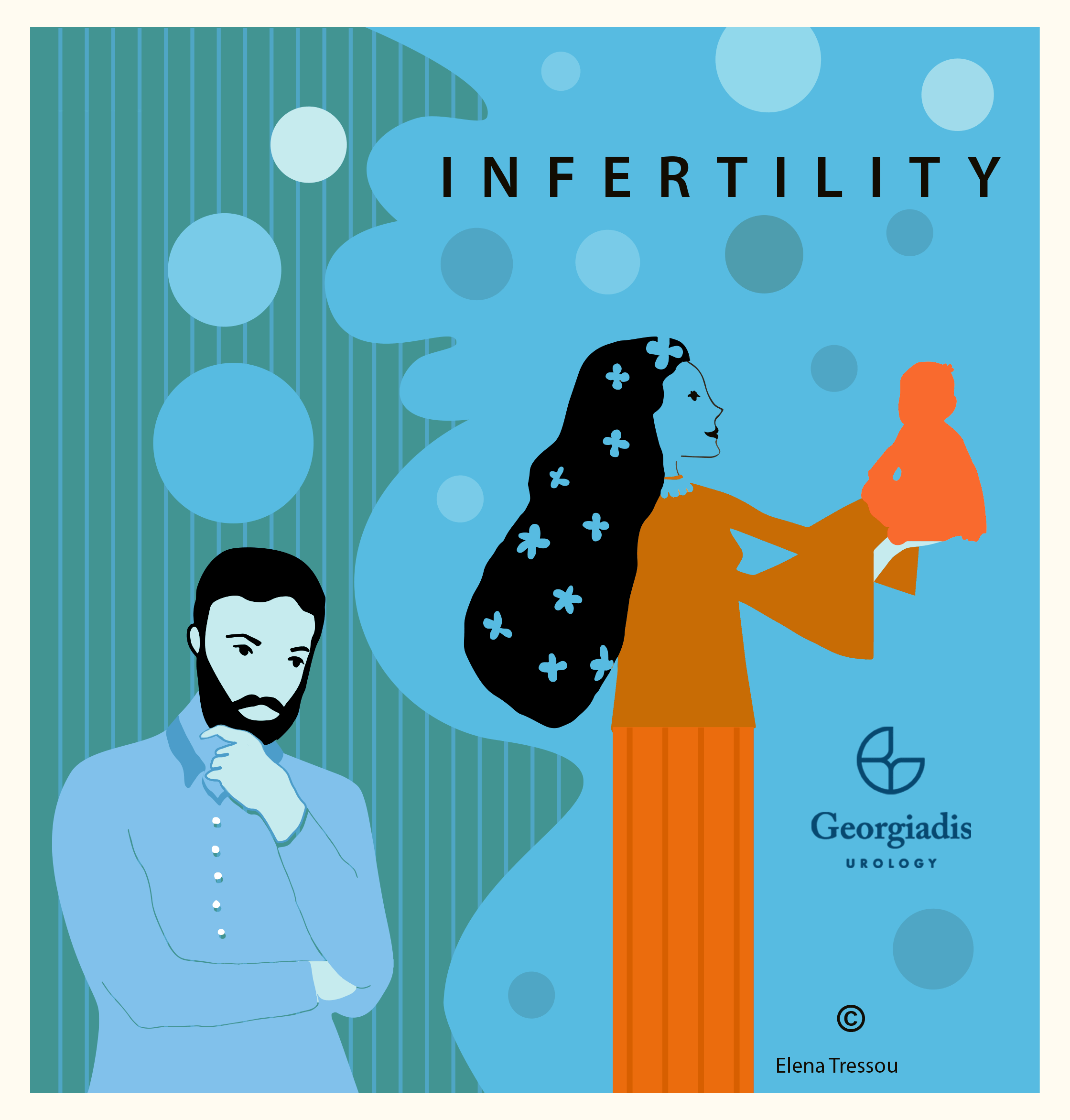Male Infertility – Condition
What is male infertility?
Male infertility refers to the inability of a man’s sperm to fertilize a woman’s egg. About 10%-15% of couples fall into the category of infertile or sterile. This means they have tried to conceive with frequent and unprotected sex for at least a year without success.
In about half these cases, the male factor is the cause. The men who suffer from infertility experience the following:
- Decrease in sperm production (semen volume & concentration of spermatozoa).
- Impaired functionality of sperm.
- Difficulty in forwarding sperm (i.e. low motility).

Figure 1: Treating male infertility may be the key to starting family. Many couples often underestimate the effect of male conditions (e.g. Chronic Prostatitis), and in combination with various misdiagnoses they end up in fruitless and costly treatment paths.
For a pregnancy to become possible, the sperm:
- Must be injected into the vagina (usually through sexual contact).
- Reach and fertilize the egg.
The sperm must have the proper structure and form, and the ability of forward movement in order to allow fertilization. If it has undergone deteriorating changes in its shape, structure and mobility, the sperm cannot reach or fertilize the egg.
There should also be a sufficient amount of sperm, (e.g. at least 15 million spermatozoids) in order to have a decent chance of pregnancy. A concentration of spermatozoids below 10 million indicates an infertile or subfertile sperm.
Important note
It is also worth noting, that even if it is evident that the male factor is the main cause of infertility, patients should not exclude the possibility that their female partners may also have fertility issues. As such, both partners should be tested thoroughly when facing difficulties in conception.
In any event, couples should not become disappointed, as in many cases the cause is found and an appropriate medication or treatment is given, resulting in a normal pregnancy. In the majority of cases of male infertility, the root cause is an infection in the urogenital system or varicoceles, both of which can be treated. Another important note is that for women who are trying to conceive via in vitro fertilization (IVF) unsuccessfully, there is very likely an underlying inflammation in the urogenital preventing the pregnancy. This is something we have faced in 20% of our female patient cases, where they managed to conceive after treating their chronic urogenital infections (i.e. cystitis, vaginitis, endometritis etc.).
So, for both men and women facing infertility problems, it is of utmost importance to deal with any potential problems in their urogenital from a specialist urologist. This is even more important before they proceed with any further supportive medical approaches such as IVF so that they are effective, if they are still necessary.
